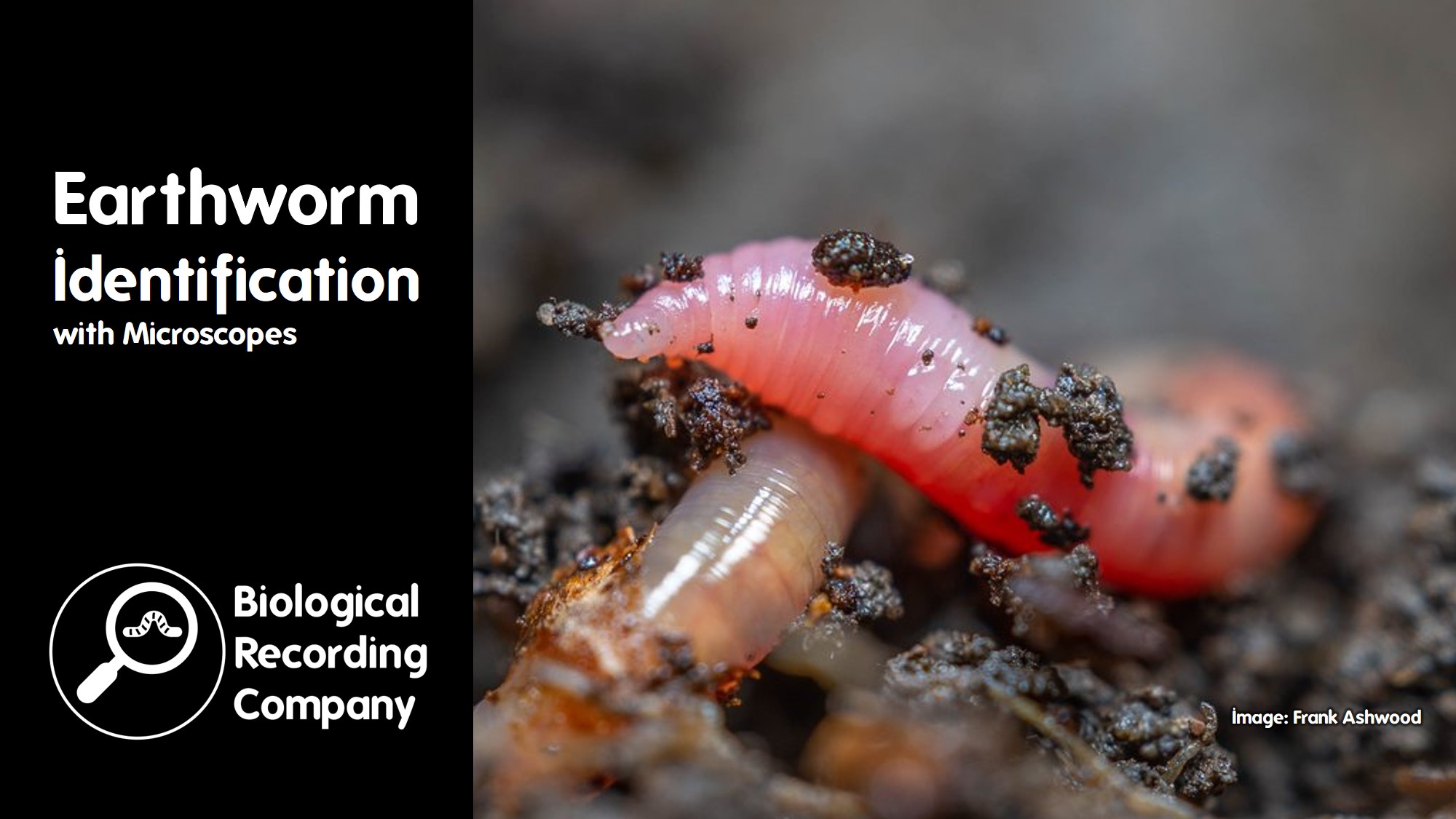Earthworm Identification
There are 30 species of earthworm living freely in soils in the UK. They are vital to the economic health of our country, as they are crucial for soil health, food production, waste decomposition and even flood mitigation.
Despite their importance, relatively few people are skilled in identifying earthworms to species level. Identification of earthworms involves inspecting specimens under a microscope to observe key morphological features that are often too small to see with the naked eye. However, with only 5 features used to distinguish between the 29 species, earthworms are a great group for novices. Learn the difference between a tanylobic and epilobic head type, how to record the position of the clitellum and how to determine if the setae on an earthworm are closely or widely paired.

What will be covered during this course?
This course provides an introduction to identifying British earthworms. This includes a short presentation introducing the morphological features used to identify specimens to species level and support from an Earthworm Society of Britain tutor throughout the practical sessions.
Please note that this course will involve using specimens that have been killed and preserved.
By the end of the course, learners will:
- Understand which external (morphological) features used in earthworm identification.
- Know how to work through the Key to the Earthworms of the UK & Ireland to determine earthworm specimens accurately to species level.
- Have practical experience observing earthworm ID features using a microscope and specimen collection.
- No microscope experience is necessary – our tutors will set up and show you how to use a microscope.
Course resource
The teaching text for this course is the Key to the Earthworms of the UK & Ireland (2nd edition) by Emma Sherlock, produced in 2019 by the Field Studies Council as part of their AIDGAP series (Aids to the Identification of Difficult Groups of Animals and Plants).
If you have your own copy, please bring it with you, though copies will be loaned by the tutor for the day.
You can order a copy of this book for just £6 extra (RRP £9.50) with your training course ticket by selecting the "Course + Publication" ticket option.

Tutor: Keiron Derek Brown
Keiron Derek Brown first became interested in invertebrates during a field-based entomology module at university and went on to volunteer on soil biodiversity research projects at the Natural History Museum (London). This included sorting samples of invertebrates to order level and sampling invertebrates across the New Forest in Hampshire and the Malaysian rainforests of Borneo.
Keiron now manages the FSC BioLinks project, with the aim of inspiring amateur naturalists to take up the identification and recording of invertebrate groups that are often forgotten and rarely recorded. He teaches our Discovering iRecord and earthworm courses. In his spare time, he is an active member, and trustee, of the London Natural History Society and is the national recorder for earthworms (running the National Earthworm Recording Scheme on behalf of the Earthworm Society of Britain).
Natural History Museum, London
This course will take place in the Angela Marmont Centre for UK Nature, located within the Natural History Museum (London). Each Learner will have access to a microscope to use for the duration of the course in the behind-the-scenes classroom.
This course is delivered by the Biological Recording Company and Natural History Museum, and is endorsed by the Earthworm Society of Britain.

Fees and refund policy
- Course only ticket (£50) grants access to the training course.
- Course+ Publication ticket (£56) grants access to the training course and includes a copy of the ID resource to keep.
Ticket fees include an administrative fee of 20% that is non-refundable. This consists of approximately 10% for Eventbrite fees and 10% for time spent by the Biological Recording Company processing the order.
Further cancellation charges will also be incurred for the following:
- 10% cancellation fee for cancellations made over 90 days in advance of the date of the course
- 30% cancellation fee for cancellations made within between 30 and 90 days of the date of the course
- 80% cancellation fee for cancellations made within 30 days of the date of the course


 Join us now!
Join us now!